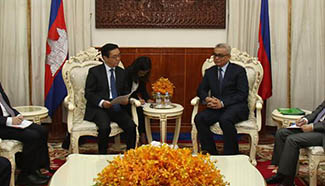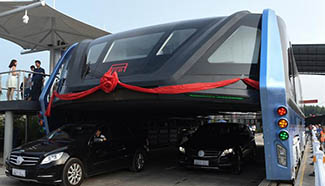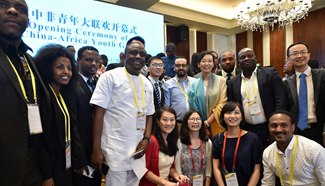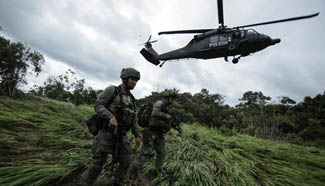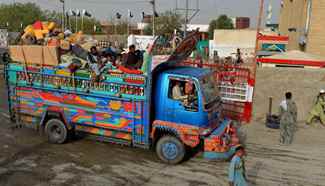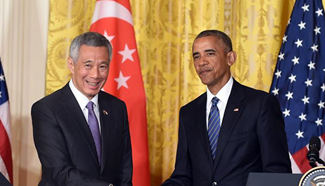SEOUL, Aug. 3 (Xinhua) -- A new Cold War is haunting Northeast Asia as Washington and Seoul agreed to deploy the Terminal High Altitude Area Defense (THAAD) missile shield in South Korea, an expert on inter-Korean relations told Xinhua in a recent interview.
"If THAAD is deployed (in South Korea), Northeast Asia will be placed under the shroud of a new Cold War," said Hwang Jae-ok, deputy director of the Institute for Peace and Cooperation in South Korea.
As she sees it, the THAAD deployment is "aimed at containing China and strengthening U.S. hegemony in Northeast Asia."
South Korea's decision to host THAAD puts regional security in peril, and countries in the region would have to choose sides in a looming confrontation, Hwang added.
Seoul and Washington made a surprising announcement in July about their decision to install one THAAD battery in Seongju county, some 250 km southeast of Seoul, by the end of next year.
The planned deployment triggered strong objection from China and Russia as radars of the U.S. missile shield can easily snoop Chinese and Russian territories.
"The THAAD deployment decision caused uneasiness among scholars studying inter-Korean relations as well. They wonder how China and Russia will respond," said Hwang, adding that she expects the two countries, two major players in the region, to take diplomatic, economic and military countermeasures.
Noting that the X-band radar of THAAD can detect all of Chinese territory and Russia's Far East, Hwang believed that the U.S. missile defense system does target China and Russia. "The THAAD deployment is not an issue for South Korea alone but an issue involving all countries in the region."
Considering that the THAAD battery set to be deployed on South Korean soil will be operated by the U.S. Forces Korea, South Korea will have less room for maneuver as its armed forces actually become a part of the U.S. missile defense program with the THAAD installations, Hwang said.
Moreover, THAAD is incapable of protecting South Korea from nuclear and missile threats from the North as the majority of DPRK missiles fly at an altitude of 20-30 km, lower than THAAD's intercepting altitude of 40-150 km, she added. ' Seoul and its surrounding areas will not be protected under the THAAD system as its interceptors have a maximum range of 200 km and the chosen site is some 250 km southeast of the capital city.
For South Korea, THAAD is by no means a cure-all against nuclear and missile threats from the DPRK, said Hwang, adding that dialogue is the only solution to denuclearize the Korean Peninsula.
She called for a rapid resumption of long-stalled six-party talks involving the two Koreas, China, Russia, the United States and Japan.
China-proposed a double-track approach on the issue, which underlines parallel efforts on denuclearization and peace talks, should be put on the agenda once the six-party talks are resumed, she said.





